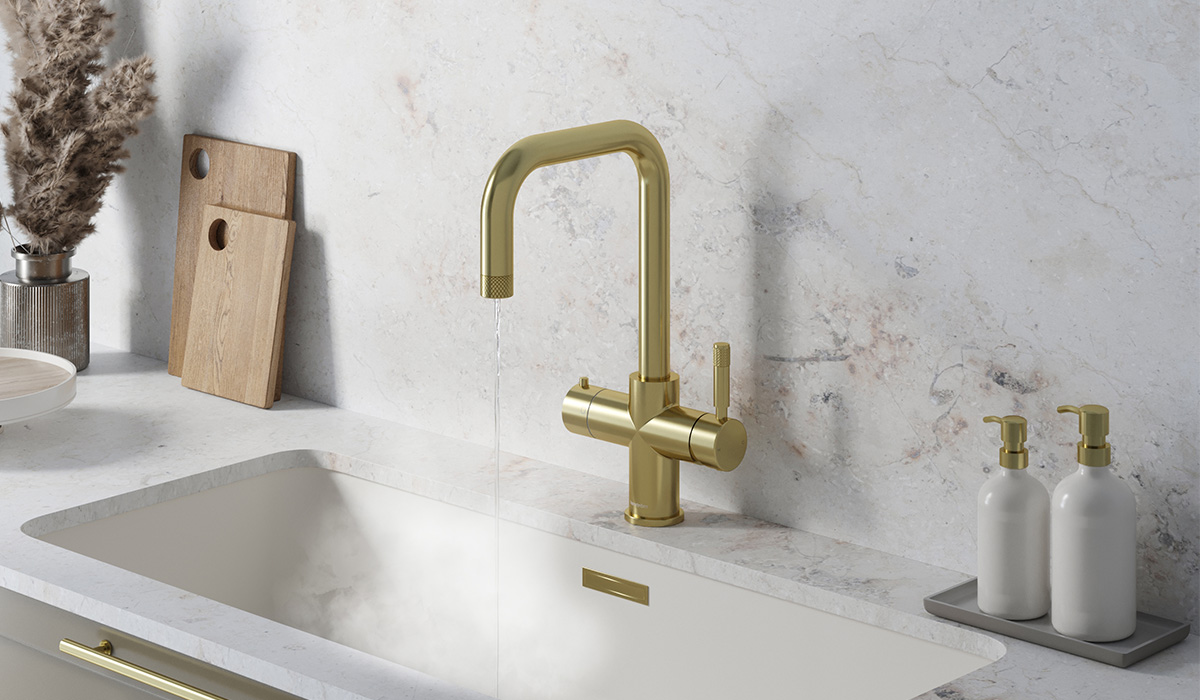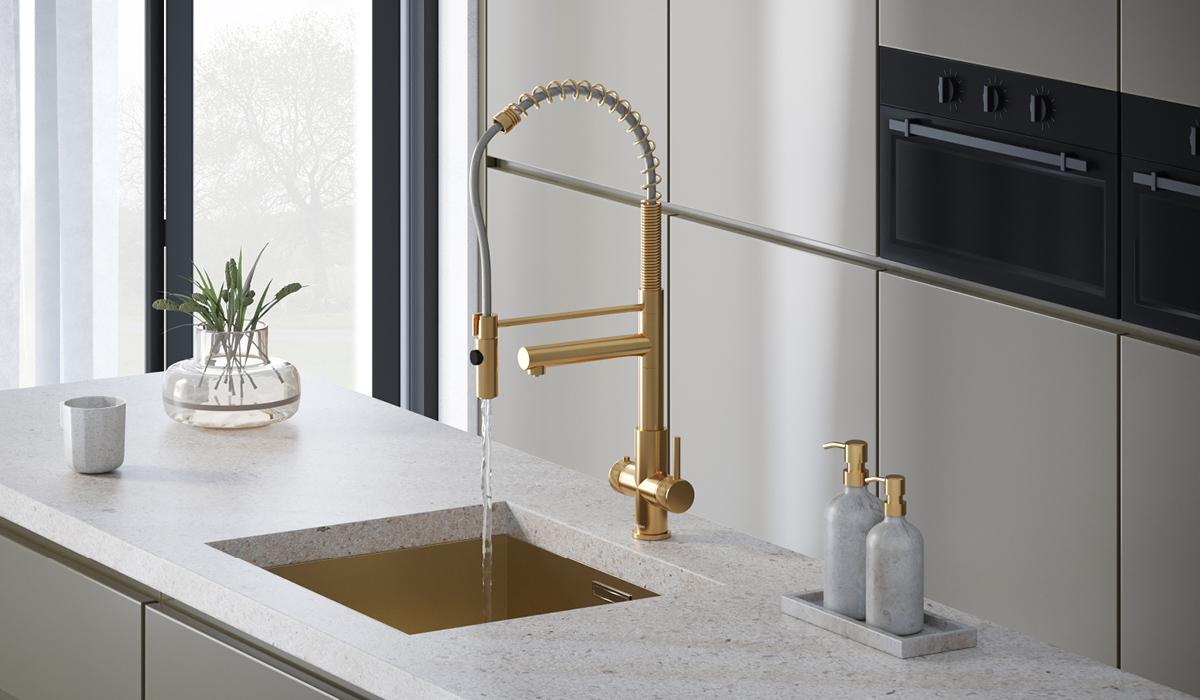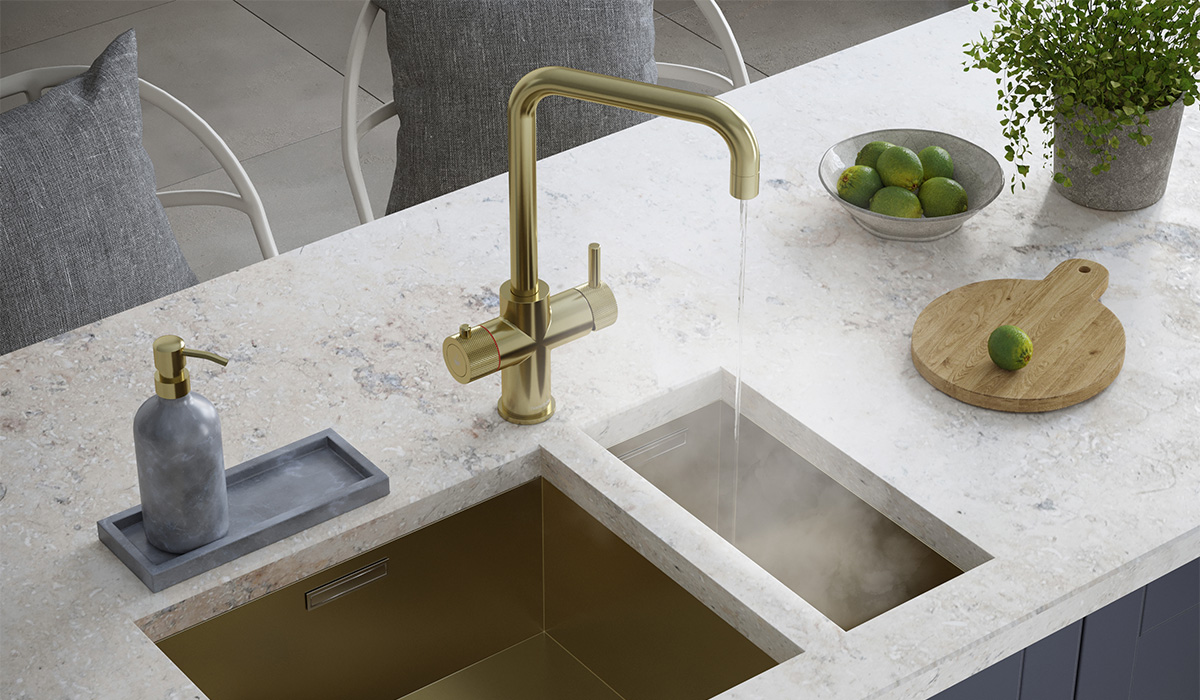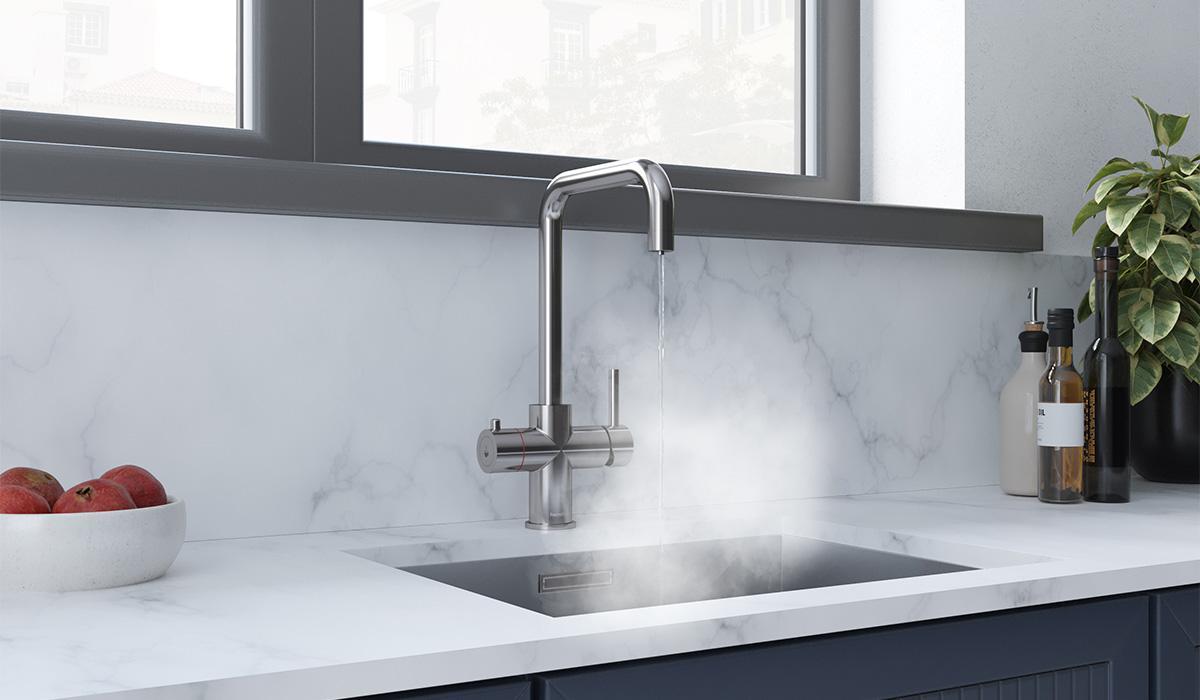Cooking is a great way to spend time with your children and teach them important life skills. However, it’s important to remember that cooking can be dangerous, too. Follow these 12 safety rules to keep your kids safe in the kitchen.
Teach your kids about kitchen hygiene
It is important to teach your kids about kitchen hygiene from a young age. Personal hygiene is necessary to prevent the spread of germs and illness, but it is also important for food safety. There are a few simple rules that you can teach your kids to help them stay safe in the kitchen.
First, always wash your hands before handling food. This includes after using the restroom, handling pets, or coming into contact with anything that might be dirty. Second, keep the kitchen clean. Wipe up spills immediately, and wash dishes as soon as you are finished using them. Finally, avoid cross-contamination by keeping raw meat and vegetables separate from cooked food. By teaching your kids these simple rules, you can help them to avoid getting sick and ensure that they grow up to be safe and responsible cooks.
1. Washing hands
It is important to always wash your hands before you start to cook. This will help to prevent the spread of bacteria and other contaminants that can cause illness. It is especially important to wash your hands after handling raw meat, as this can contain harmful microbes that can be transferred to food. When washing your hands, be sure to use hot water and soap, and scrub for at least 20 seconds.
If you are cooking with children, it is important to teach them the importance of hand-washing as well. Explain that bacteria can make people sick, and show them how to properly wash their hands. Remind them to wash their hands before they start to cook, and also after handling raw meat or any other potentially contaminated food. By teaching children the importance of hand-washing, you can help to keep them safe in the kitchen.
2. Using different chopping boards for meat, fruits and vegetables
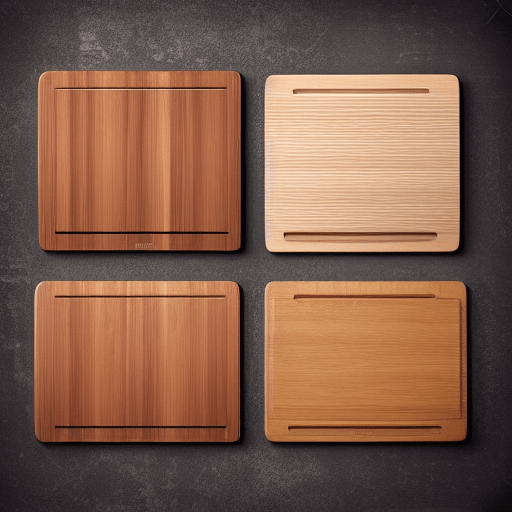
As any parent knows, kitchen safety is an important part of keeping your children safe. One way to help prevent accidents in the kitchen is to use different chopping boards for meat, fruits and vegetables. This helps to prevent cross-contamination between different types of food, which can lead to foodborne illness. Using separate chopping boards also makes it easier to keep track of which food items have been cooked and which ones need to be washed. This can be especially helpful when cooking for a large family or group of friends. By using different chopping boards, you can help to ensure that everyone enjoys a safe and healthy meal.
3. Make a fire safety plan
In the event of a fire, every second counts. That’s why it’s so important to have a fire safety plan in place to ensure that everyone in your family knows what to do in the event of an emergency. When it comes to kitchen safety for children, there are a few key things to keep in mind.
First, make sure that your child knows how to use the stove safely. If they’re old enough, teach them how to operate the oven and stovetop properly. If not, make sure that they understand that these appliances should never be used without adult supervision.
Second, always keep a fire extinguisher within reach in the kitchen. Show your child how to use it, and make sure that they understand that it should only be used in the event of an actual fire.
Finally, have an evacuation route planned out ahead of time. Make sure that everyone in the family knows where to go and what to do in the event of a fire. By taking these steps, you can help ensure that your family is prepared for any emergency.
4. Wipe up kitchen mess and spillages

It’s important to be vigilant about keeping your kitchen clean and tidy, especially if you have young children. Even the most curious child can find themselves in danger if they’re able to get their hands on a sharp knife or hot stove.
One of the best ways to prevent accidents is to wipe up any spills or messes right away. This way, there’s no risk of anyone slipping and falling, and you can also avoid attracting bugs and other pests. Furthermore, it’s a good idea to keep all cleaning supplies out of reach of children, just to be on the safe side. By following these simple tips, you can help to keep your kitchen a safe and enjoyable place for everyone.
5. How to store food correctly
It is important to store food correctly to prevent poisoning. All food should be stored in a cool, dry place. Never put food in an unlabeled container. Always clean up spills immediately. If you see any insects or mould, throw the food away.
It is important to wash your hands before you handle food. You should also wash any knives, cutting boards, or other utensils that have come into contact with raw meat, poultry, or fish. These foods can contain bacteria that can make you sick.
Cooked food should be stored in a clean container and refrigerated within 2 hours of cooking. If the cooked food is still warm, it should be cooled down by putting it in ice water. Never put hot food straight into the fridge as this can raise the temperature inside and cause other food to spoil. When you reheat cooked food, make sure it is steaming hot all the way through before you eat it.
You should also be careful about cross-contamination when you are storing food. This happens when bacteria from one food item spreads to another. To prevent this from happening, keep raw meat, poultry, and fish separate from other food items. Use different cutting boards and plates for raw and cooked foods. And always wash your hands after handling raw meat, poultry, or fish.
Hazardous kitchen tools and appliances
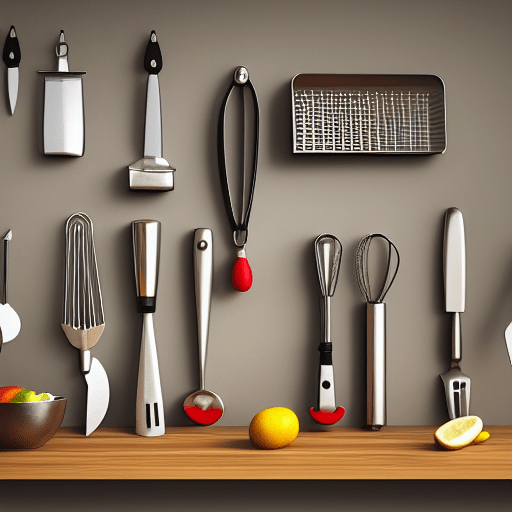
The kitchen is full of potential hazards, from sharp knives to hot ovens. As a result, it’s important to take care when cooking and to ensure that children are kept safe. There are a few simple steps that can help to make the kitchen a safer place.
For example, it’s important to keep knives out of reach of children and to store them in a drawer or block. Knives should also be sharpened regularly to prevent them from becoming dull and more dangerous.
In addition, appliances such as the stove should be kept clean and free of grease, and pans should be handled with care to avoid burns. By taking these precautions, you can help to make your kitchen a safer place for both adults and children.
6. Teach kids which tools are off limits
In any kitchen, there are a few tools that are off-limits to kids. The stove is one of them. Kids should never be left alone near an open flame, and they should never be allowed to play with matches or lighters. The kitchen knives are another tool that is off-limits. Even plastic knives can be dangerous in the hands of a child. Parents should always supervise their children when they are using any kind of knife, and they should teach them to use the knife properly.
The sink is another potential hazard. Kids should never be left alone near running water, and they should never be allowed to play with the faucets. Parents should also make sure that their children know not to put their fingers down the garbage disposal. These are just a few of the many dangers that kids face in the kitchen. By teaching them which tools are off-limits, parents can help to keep their children safe.
7. Keep kettles out of reach
At first glance, a kettle might not seem like a dangerous kitchen appliance. After all, it’s just for boiling water, right? But kettles can be one of the most hazardous items in the kitchen, especially if you have young children. The problem is that kettles are often left on the stovetop, within easy reach of curious little hands. And since water doesn’t have a colour or odour, it’s hard for children to know when it’s hot.
As a result, serious scalding accidents are all too common. An alternative is to go for a safer boiling water tap instead, which can be installed out of reach of curious children. Boiling water taps also have the added benefit of being easier and more convenient to use than kettles. So if you’re looking for ways to make your kitchen safer for your kids, ditching the kettle is a good place to start.
8. Get an oven lock
While the kitchen is full of potential hazards, there are a few simple steps that parents can take to help keep their children safe. One of the most important is to install an oven lock. This will prevent curious little hands from opening the oven door and coming into contact with hot surfaces.
Another kitchen safety tip is to keep knives out of reach. Children can easily hurt themselves if they get their hands on a sharp knife. Instead, parents should store knives in a drawer or high cabinet where kids can’t reach them.
Finally, it’s important to teach children not to touch electrical outlets. They should also be supervised when they are near appliances like the stove or microwave. By following these simple safety tips, parents can help ensure their children have a safe and enjoyable experience in the kitchen.
9. Lock cleaning chemicals away
Many parents take careful steps to child-proof their homes, but accidents can still happen. One way to help prevent accidents is to keep cleaning chemicals locked away. This may seem like an inconvenience, but it only takes a moment for a child to get into something they shouldn’t.
If cleaning chemicals are stored in a cabinet that can be easily accessed, it’s only a matter of time before something goes wrong. But if they’re kept in a locked cupboard, it’s much less likely that a child will be able to get their hands on them.
In the event of an accident, every second counts, and having to find the key to the cupboard could make the difference between life and death. So while it may be slightly more inconvenient to have to unlock the cupboard every time you need something, it’s worth it for the peace of mind that comes with knowing your children are safe.
10. Teach your child basic first aid
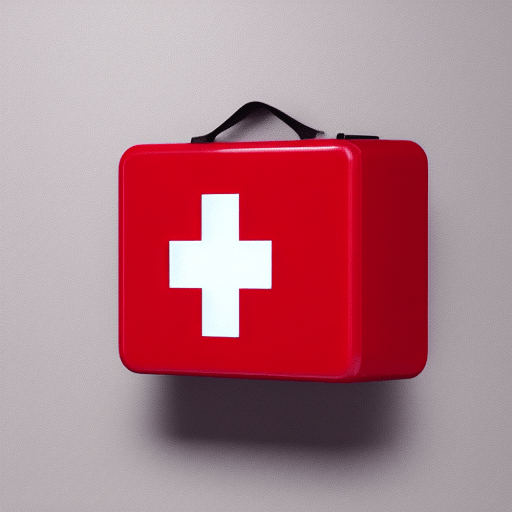
Every parent wants their child to be safe, especially in the kitchen. Teaching them basic first aid is a great way to start. burns are one of the most common injuries in the kitchen so it’s important to teach your child how to identify and treat them properly.
If they see someone with a burn, they should immediately call for help and then cool the area with running water for three to five minutes. If the burn is larger than their palm, or if it’s on their face, hands, feet, or genitals, they should also seek medical attention.
Cuts are another common kitchen injury, so it’s important to teach your child how to clean and bandage them properly. Again, if the cut is more than a quarter inch deep or if it’s bleeding heavily, they should seek medical attention. By teaching your child these basic first aid skills, you can help keep them safe in the kitchen – and anywhere else life takes them.
Appropriate clothes to wear
No matter what your age, the kitchen can be a dangerous place. From sharp knives to hot stoves, there are plenty of hazards that can lead to serious injuries. That’s why it’s important to take some basic safety precautions when cooking, and this is especially true if you have young children in the kitchen.
One of the most important things you can do is to dress them in appropriate clothing. Loose-fitting clothes can easily catch fire, so it’s best to stick with tight-fitting shirts and pants made from natural fibres. You should also avoid loose jewellery, which can get caught on handles or knobs.
In addition, closed-toe shoes are a must in the kitchen. Lastly, make sure your child knows to stay away from the stove and other hot surfaces. By taking these simple precautions, you can help to keep your child safe in the kitchen.
11. Never walk barefoot in the kitchen
Kitchens are full of potential hazards, from sharp knives to hot stoves. For children, who are often curious and impulsive, the kitchen can be a particularly dangerous place. That’s why it’s important to take some simple precautions to ensure kitchen safety for kids.
One of the most important rules is to never walk barefoot in the kitchen. Shoes protect from sharp objects and hot surfaces, so always make sure your child is wearing shoes when they’re in the kitchen.
Another important rule is to never leave children unattended in the kitchen, even for a minute. If you need to step away, take them with you or ask another adult to watch them. By following these simple safety rules, you can help keep your child safe from harm in the kitchen.
12. Don’t wear floppy sleeves in the kitchen
In the kitchen, there are a lot of potential hazards that can cause serious injury to children. That’s why it’s important to take some precautions to make sure your kids are safe while they’re helping out with dinner.
One simple rule is to make sure they’re not wearing any floppy sleeves. If a sleeve gets caught on something, it can quickly pull a child’s arm into the danger zone. Long, tight sleeves are much safer. Another good tip is to have kids stand on a stool so they can reach the countertops more easily. This way, they’re less likely to have an accident while trying to reach something that’s just out of their grasp. By following these simple tips, you can help keep your kids safe while they’re helping out in the kitchen.
Conclusion
The kitchen is full of potential hazards for children, from sharp knives to hot stoves. That’s why it’s important to take some simple precautions to ensure kitchen safety for kids. Some basic rules to follow are to never walk barefoot in the kitchen, never leave children unattended, and make sure they’re wearing appropriate clothing. By following these simple tips, you can help keep your little ones safe from harm in the kitchen.
Our boiling water taps are designed to prevent scalding with the use of a child-safety mechanism. Shop the full range of boiling water taps here
